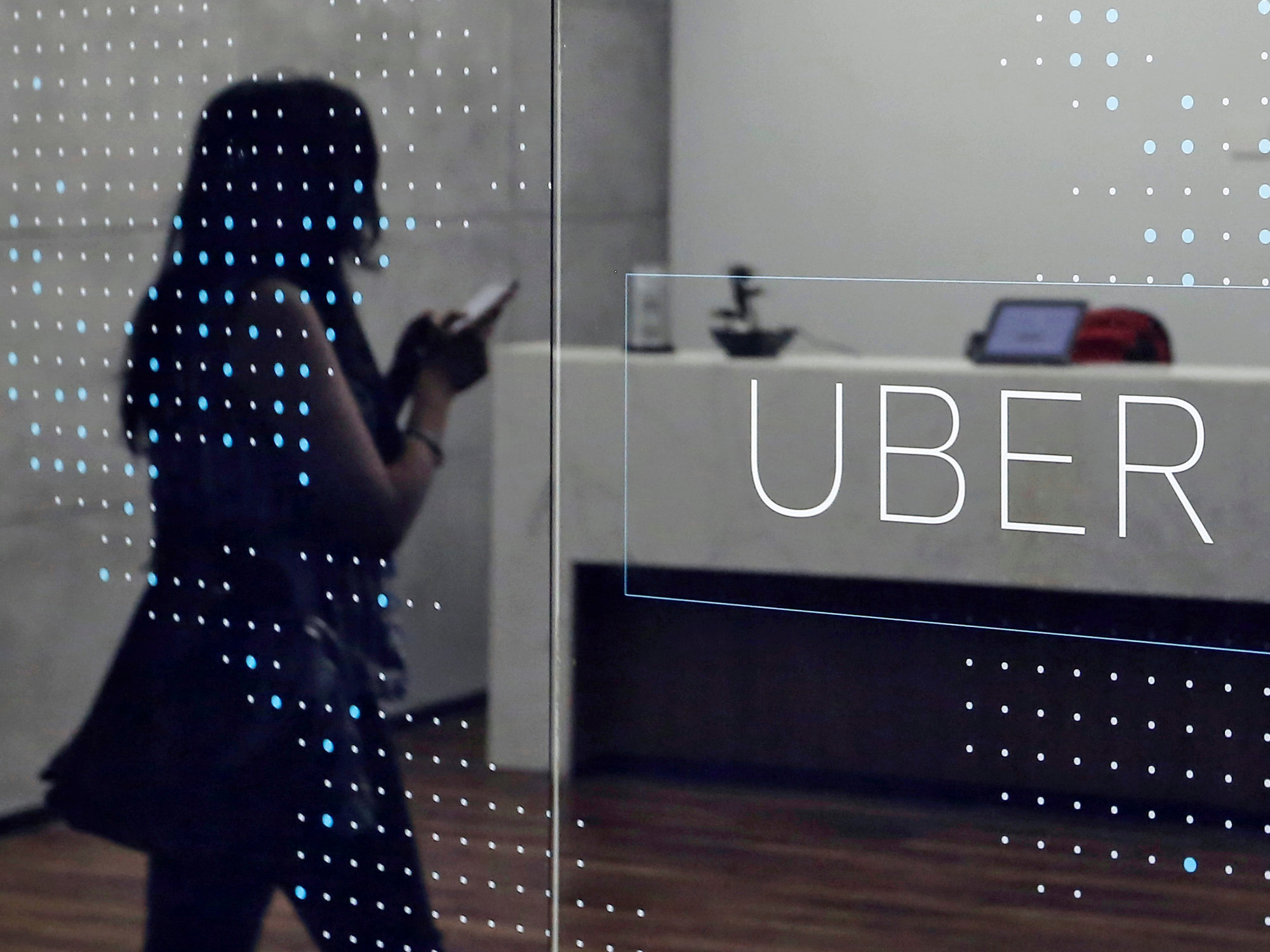In February, Susan Fowler, a former Uber engineer, published a damning blog post alleging she endured sexual harassment at the company.
She described her “strange experience” at the ride-hailing startup, which allegedly involved HR ignoring her complaints that her manager was sexually harassing her.
That was just the start of Uber’s woes.
As Business Insider’s Biz Carson reported, the startup was hit with further accusations of harassment, as a New York Times report alleged groping and drug use among employees at a company retreat. The stream of bad news may have prompted a recent exodus of execs and managers, including SVP Amit Singhal, who had not disclosed sexual harassment complaints against him from his previous job at Google.
As a result of the allegations, Uber launched an internal work misconduct investigation and has enlisted outside law firm Perkins Coie to investigate as well. In addition, US Attorney General Eric Holder is leading a separate investigation specifically focusing on investigating sexual harassment, reporting back to the company's board.
So far, 215 claims of various inappropriate workplace incidents including sexual harassment have been investigated, as Business Insider previously reported. On Tuesday, Uber fired 20 employees as a result of the investigation and recommended training for 31 more workers.
2/ And here’s a further breakdown of the 215 claims: pic.twitter.com/yLhFGvgmlJ
— Uber Comms (@Uber_Comms) June 6, 2017
But is it enough to fix a culture that led to repeated allegations of harassment?
"I like the idea that people and organizations can be rehabilitated," says Raleigh, North Carolina-based human resources consultant Laurie Ruettimann. "I'm not sure I've seen that in practice in recent history, but I have to believe it's true."
Business Insider spoke with three HR experts to find out the implications of the allegations and resulting investigations for Uber and how the world's most valuable startup might correct its course going forward.
'The culture permitted it'

The HR experts agreed that such a crisis is indicative of a toxic, secretive company culture, in which harassment and other bad behavior can flourish.
"Obviously the culture permitted it and allowed it to happen," says executive coach and Learning Engine president Dr. N. Elizabeth Fried. "One would hope that the culture comes out of an evolved level of thinking, but ... if they were truly a culture that was committed to fairness and equality and that type of situation, they wouldn't be in the position that they're in."
In other words, in order to permanently fix the problem going forward, the entire culture must change.
'This is a first step'
John Hudson, a Chicago-based HR business partner with Slalom, LLC., says that Uber firing employees as a result of the investigation is "a smart PR move."
"If there is an alleged culture of harassment there, this is a first step," he says. "They then need to continue to build on cleaning up the environment and change their hiring practices."
"If they are truly serious about changing the culture, then cleaning house is necessary," Hudson says. "Have they identified where the issues are? A lot of these culture problems start at the top of an organization. Were they bold enough to make some moves of some bad apples regardless of their performance? Or did they look the other way at some of the talent?"
'Enforce a zero tolerance policy for these behaviors'

As Business Insider's Biz Carson reported, the harassment allegations have proven "a problem Uber has been slow to recognize."
Recommendations from the investigation's official report are expected to be announced next week, after Uber's staff meeting. The experts had some suggestions on what policies may actually help combat harassment.
"If there was not a formal investigative process or way for employee complaints to be investigated, a good first step would be to implement one," Hudson says. To do this, he suggests a few things:
• Establish an anonymous hotline
• Have an independent internal team or an independent third party be responsible for the thorough investigation of each claim
• Institute and enforce a zero tolerance policy for harassment
An Uber spokesperson has said that the company does have a confidential help line, which it will continue to run, as well as a new system in place to better log and track complaints.
'A fresh take on human resources'
Ruettimann says that the company needs to look closely at its hiring process to understand "what it can do to create better talent pools."
"Recruit better, hire better, fire faster," she says.
"What seems weird is that they haven't hired a big-name HR professional to help them clean house," Ruettimann says. "Maybe they don't have any faith in the HR profession. Maybe they don't know anybody who can help them in the trenches. But from developing a diverse talent pool to managing performance, Uber could really use a fresh take on human resources."
An Uber spokesperson told Business Insider that the company's global employee relations team has doubled and continues to be led by former Google VP Liane Hornsey.
'You should have known'

Uber announced that, in addition to the 20 terminations, 31 employees are in training and seven have received final warnings about their behavior. In addition to sexual harassment, Perkins Coie investigated claims of unprofessional behavior, bullying, retaliation, physical security, wrongful termination, and other forms of harassment. No action was taken regarding 100 of those claims, and 57 are still under review, Biz Carson reported for Business Insider.
Fried advocates for company-wide training on harassment, specifically breaking down how to identify, report, and investigate harassing behavior. She says that the previous claims of ignorance by Uber's top brass is not a good excuse.
"If you keep a blind eye, that doesn't work," Fried says. "If you're paying attention, you should have known."
An Uber spokesperson told Business Insider that all managers will receive training from Frances Frei, a leadership expert and economist who previously advocated for gender equality at Harvard Business School.
Hudson says that the response needs to go beyond training.
"If a recommendation is just for some formal sensitivity or civil treatment training, and nothing else, that would be problematic and disappointing," says Hudson.
'I'm not quite sure how this shakes out for Uber'
Other initiatives would be less welcome.
"I'm sure there's going to be some recommendation around mentoring women," says Ruettimann. "Whenever there's a problem, the answer is always to mentor women."
"The problem with mentoring is that it rarely leads anywhere," she says. "You can mentor the hell out of a woman, but if you don't have a culture where she can get promoted based on her knowledge, skills or abilities, you've got nothing."
Hudson agreed, saying that Uber's response shouldn't be to simply settle for establishing training and initiatives that the company should have already had in place.
What's more, while the experts agreed that preemptive training is important, Ruettimann thinks it's not enough as a method of dealing with harassers: "Training doesn't stop harassment. Zero tolerance policies stop harassment."
"I'm not quite sure how this shakes out for Uber, but nothing ends a culture of harassment quicker than firing the people who harass women and working hard to make sure that it doesn't happen again by promoting more women into leadership roles," Ruettimann says.
At the end of the day, if nothing changes, Uber - and other companies facing similar issues - could be in trouble. As things stand now, "the lesson is don't work for Uber if you're talented, bright, and you want to associate yourself with a brand that respects people," says Ruettimann.

